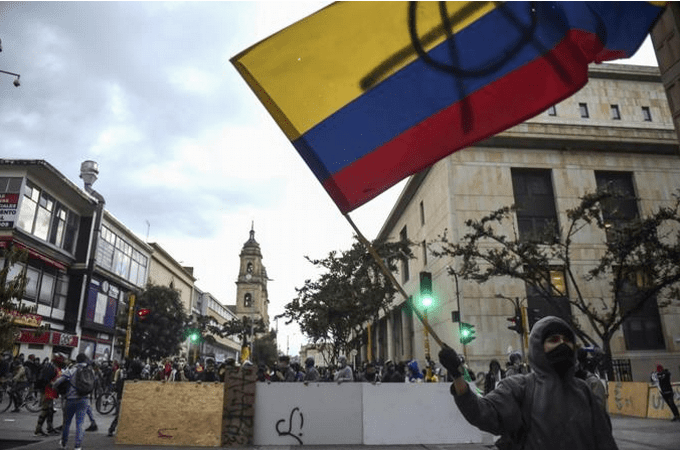As of Monday, the Simón Bolívar and Francisco de Paula Santander international bridges will once again connect legal trade between Colombia and Venezuela to the great expectations of its residents who have waited seven years for its reopening.
“We don’t want it to be a media show or a symbolic act, but an economic reactivation with all the legality as we had been doing before 2015,” Sandra Guzmán Lizarazo, president of the Colombian Federation of Logistics Agents in International Trade, told The Associated Press. From cucuta. “We are going to start from scratch and the first thing is to create confidence that operations are going to be constant,” she added.
The act of reopening the border is planned for 10 in the morning, Colombian local time, with the presence of President Gustavo Petro, the first leftist in Colombia, who began the thaw of relations with Nicolás Maduro by recognizing him as legitimate president. of Venezuela, contrary to his predecessor, who supported the opposition leader Juan Guaidó.
With the imminent reopening, vehicles began to travel through Colombia to reach the border loaded with products such as corrugated cardboard, confectionery, toilet paper and plastic cups, which a few years ago were imported from Venezuela and will now be exported, according to Guzmán Lizarazo.
The extensive 2,200-kilometre border region between Colombia and Venezuela is connected by binational bridges, some built over the Táchira River. What used to be a common border that united family and economic ties changed radically in August 2015, when Maduro ordered its closure after an attack that left three soldiers injured while they were carrying out an operation against smuggling in San Antonio del Táchira, on the side Venezuelan.
The lives of the settlers who used to cross the border to shop or work changed overnight. Hundreds of Venezuelan soldiers guarded the closed border and a few days later the deportation of thousands of Colombians began.
Since then, the border has been closed and opened intermittently for pedestrians and more than two million Venezuelans have migrated to Colombia, but the commercial closure remained and was a blow to the legal economy. Some merchandise managed to pass through the north of the border in Paraguachón, in Colombian La Guajira, but the bridges of Norte de Santander that connect with the state of Táchira remained closed.
Gone are the boom years in which bilateral trade exceeded 7,000 million dollars, during its peak in 2008. In 2020, during the pandemic, the lowest figure was recorded with 222 million dollars, said the Ministry of Commerce Colombian.
The impact that the reopening will have for 2022 is still uncertain and estimates vary. According to the Colombo-Venezuelan Chamber, it could reach 1,000 million dollars and according to the Venezuelan government, 4,000 million dollars. In any case, it is about exceeding the current figure registered by the Colombian government, which indicates that until July trade reached 383 million dollars.
The trade has not stopped due to the official closure, it has continued in the form of contraband through dozens of illegal steps -called trails-. It is also a key corridor for arms trafficking, human trafficking and drug trafficking that is disputed by various illegal armed groups such as the guerrilla National Liberation Army, the Aragua Train, the Clan del Golfo and the dissidence of the extinct Revolutionary Armed Forces of Colombia (FARC).
One of the main challenges that governments have will be to control contraband and guarantee security at the border. The Directorate of National Taxes and Customs (DIAN) of Colombia explained to the AP that the activation of customs operations will be accompanied by control through the inspection areas and the fiscal and customs police.
“Businessmen are going to prefer to export their products legally with all the guarantees, with legal and financial security, and not do it through trails,” Javier Pabón, president of the Board of Directors of the Cúcuta Chamber of Commerce, told the AP. “It will reduce the illegal intermediation that occurs towards Venezuela,” he added.
